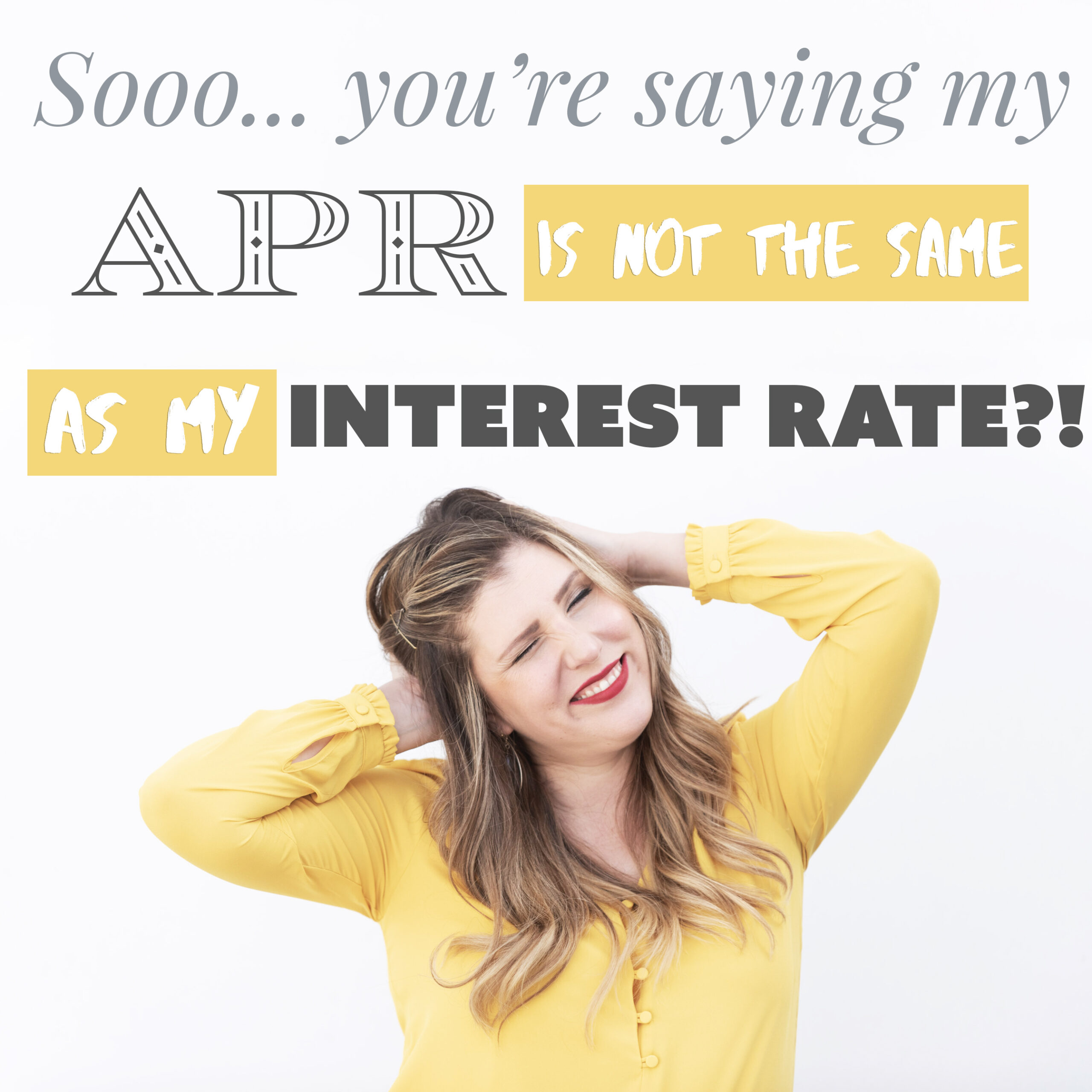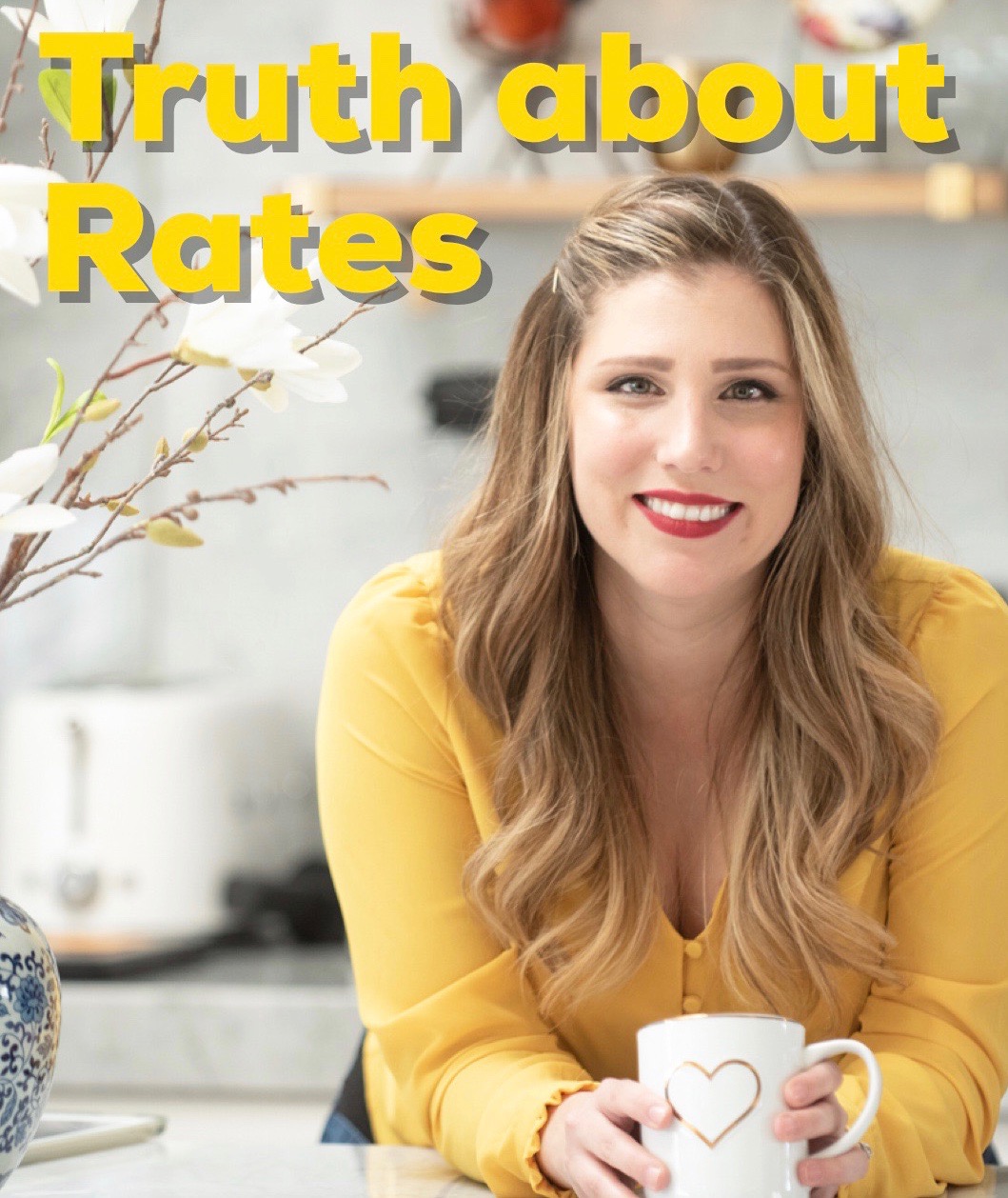Blog
Why is my “annual percentage rate” (aka APR) higher than my interest rate?
This is a frequent question I get asked during the mortgage process, and the answer to this is rather confusing!
The confusion starts with the name Annual Percentage Rate… it implies that this is the “interest” percentage that you pay annually for your house, your car, your boat, (your fill in the blank if it’s financed)…
While that is true to some extent, it does not explain that your APR includes way more than just interest. It includes ANY fees associated with obtaining financing. Which is why your APR is typically higher than your “locked in rate”!
I break this down in more detail along with why financial gurus emphasize knowing this figure on today’s Money Tip!
I would love to answer your finance questions! Let me know below if there is a topic you want us to break down in a future MTM!
Thank you for tuning in!!!
Lizy
May 6, 2019

I know we’ve talked about mindset before (if you missed that one, check it out here) but I think it’s worth another look at how limiting beliefs can actually cost you money. I know that sounds crazy, but it’s absolutely true. It’s amazing how shifting your mindset can change your life in SO many ways, especially when it comes to money!
Remember the old adage, “If you don’t ask, you don’t receive”? Well that’s true when it comes to savings too. There are tons of ways you can ask for savings… sometimes it’s as simple as clipping those coupons, sometimes it’s as easy as asking for a better interest rate on a credit card, or even seeing if your bank offers free checking. The point is, if you don’t ask for it, they’re not going to give it to you! I know, asking for anything having to do with money can be uncomfortable for some of us. I was DEFINITELY one of those people. But once I saw how asking for these things helped to save my hard earned dollars, I started making a habit of doing my research, seeing if better options were available, looking for better interest rates, and always asking for savings. It might only be a few dollars here and there to start, but those dollars add up over time. I truly hope that if you’ve learned anything from these money tip videos, it’s that consistent small actions over time lead to big results in long run. So stop leaving money on the table, and don’t be afraid to ask for savings!
Make it a great week!
Lizy
May 2, 2019

Hello and Happy Monday!
After our last video on credit I received a bunch of emails about what kinds of things would maximize score potential. I recorded today’s video to talk about the three most commonly asked questions regarding what is good debt, bad debt, credit usage, and how long you should keep open lines of credit.
The truth is that credit usage can be subjective depending your financial situation, spending habits and current credit profile. The tips I am giving are best practices based on my almost 16 years in home finance.
This video covers a lot about what makes up good credit profile but I wanted elaborate a little more on the topic of what is “Good Debt” vs. “Bad Debt”? There are MANY different opinions on this topic… some will say all credit is bad, while others will say you HAVE to have it. My personal opinion is that credit should be used for the following two things:
1. To leverage investments. I qualify an investment as anything that will grow in value over what you pay in interest, earn cash flow or will bring you higher earning potential i.e. college education
2. Build a credit “reputation” aka credit score and can use it responsibly than it is good debt. Something I did not mention in the video but also feel strongly about is financing.
I consider “bad debt” to be lines of credit that are over leveraged and not likely to be paid back. They typically have high interest, high fees, and might be in collection status.
I have two previous blog posts and a video with strategies on how to get out of debt on this blog, and would love to help provide additional resources if you feel that this would be helpful to you!
My goal with Money Tip Monday is to always to provide you with practical ways to get ahead financially. My hope is that you will find today’s video helpful when it comes to credit, and that it will encourage you to email, comment and/or pass this one to friends and family who might also need this!
Looking forward to speaking with you soon!
April 15, 2019

This week’s Money Tip is all about the Velocity Banking! You will hear or have heard about this strategy after you become a homeowner. It’s one of the most popular mortgage searches on internet and so I wanted to give a comprehensive breakdown so you can decide if this practice is good for you!
For starters… what the heck is Velocity Banking? Velocity Banking also known as the “HELOC Strategy” is a personal finance approach that uses a home equity line of credit (HELOC) to leverage disposable income to pay down your primary mortgage. Typically banks will loan up to 80-90% combined loan to value for a second mortgages and depending on your credit and if your property has sufficient equity you would borrow enough to pay your monthly expenses plus principle reductions. The idea is that you would use this credit line as your primary operating account to pay your monthly expenses (similar to what you would do with a checking account) and then whatever is left over in disposable income would be used as a principle reduction payment to pay down the balance on the first mortgage. This would eliminate the need for a savings account as all of your extra funds would be used for principle payments and you would still have access to emergency/big purchase funds since you are leveraging an equity line.
The PROS: If you are disciplined with your personal finances and have “disposable” income this is an excellent way to get out of debt. Paying down your mortgage will save you thousands in interest, and can help you retire earlier (if that is what you desire).
The CONS: Most Americans when given the access to credit find themselves more in debt so a line of credit can be a slippery slope. Also mortgage interest is historically low, and leveraging a home loan so that you can invest your disposable income in the stock market, retirement accounts or other investments will more than likely pay back a higher return at this time.
Another con- but not so much about the approach, is that this type of strategy is highly associated with multi-level marketing companies or subscription software that charges monthly fees for information on best practices. My personal opinion is that you can research most of this if not all of this information free with a Google search so please keep that in mind before signing up for anything!
If you would like more information on this, head over to our Lizy Hoeffer Youtube Channel!
-Lizy
April 9, 2019



